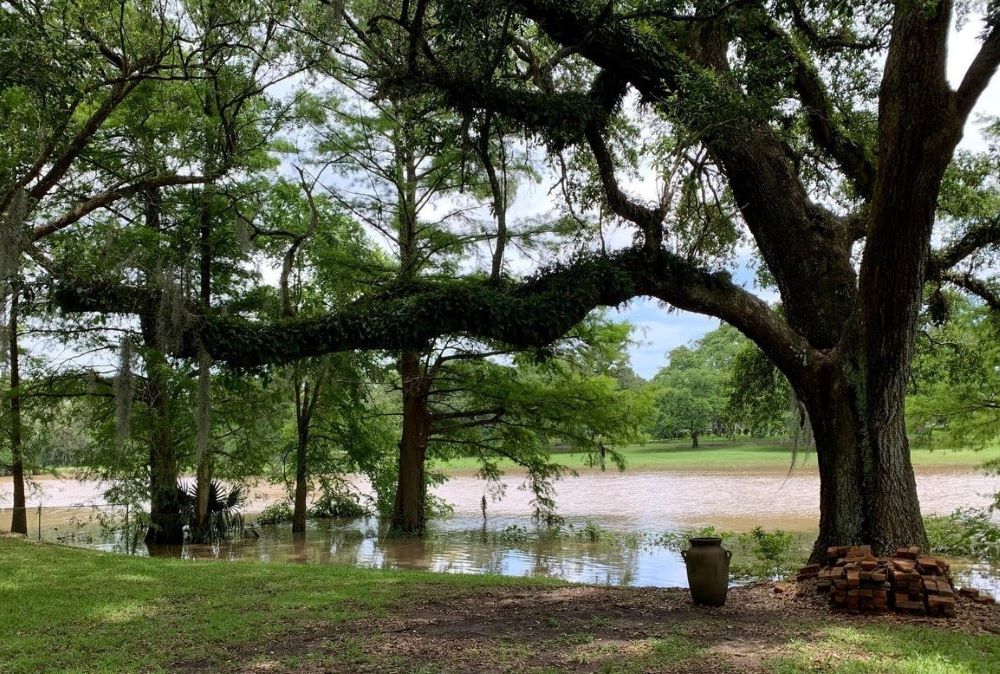
The loss of an oak tree like this one in her backyard in Louisiana made Eucharistic Covenant Sr. Celeste Larroque think about the how the death of a tree leaves behind the potential for new growth. (Celeste Larroque)

(GSR logo/Toni-Ann Ortiz)
Our panelists for the 2021-2022 The Life have only two months remaining! For both the August and September issues of The Life, we asked all our panelists the same question: Why do you stay in religious life? What gives you hope?
The responses are so profound, we have divided the panel even further, into four different sets of responses. Read part one of this month's dispatch.
Are you interested in becoming part of The Life? Here's how to apply.
______
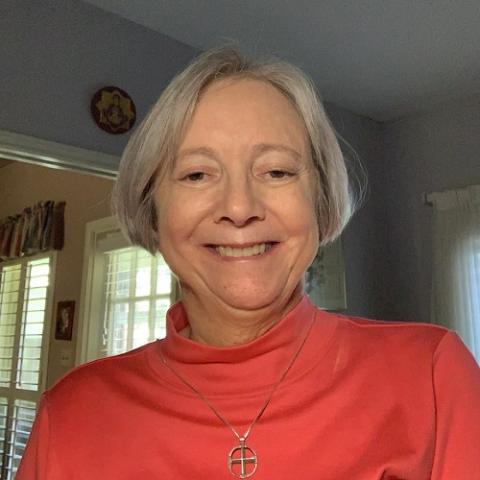
Celeste Larroque, a member of the Sisters of the Eucharistic Covenant, is a native of southern Louisiana. She has been in religious life for 47 years and currently is on her community's leadership team. She resides in Lafayette, Louisiana. A licensed clinical social worker, she has spent her career primarily in the areas of social services and psychotherapy. Currently, she is the delegate for religious in the Lafayette Diocese.
When asked why I stay in consecrated life, the short answer is, "It's who I am." It truly is: I can remember wanting to be a sister as far back as grade school. As I grew up, the desire was always sitting dormant in my mind, nudging my senses now and then. It companioned me through adolescence, teenage romance, and the sowing of a few wild oats in college. It was a thread of desire that ran along with me through all my whims and wishes. It turned out to be almost sacramental as I experienced it as a living and transformational journey through my years — where God always speaks in mysterious ways. And it continues to be so.
The hope I live in this life is one that can be illustrated by a recent experience. I had a beautiful live oak tree in the backyard. Almost overnight, all the leaves turned brown from some sort of disease, and its beautiful green crown fell to the ground. When we had to cut it down, I grieved the loss of the tree, its shade and its arms outstretched to the community of family and friends who gathered under its cover in soft summertime breezes. The backyard now looks vulnerable and lonely without its green guardian.
'It's who I am.'
One afternoon, after the loss of the tree, I was sitting on the back patio, contemplating all that could have been had that tree survived. My thoughts became a meditation that seemed to move from that barren backyard to some sort of connection between a place of loss and a new place borne upon a subtle inkling of the creative process.
This gentle epiphany now lifts my spirit when I think about the hope I have for religious life, now and in the future. The dead stump in the yard is still there; I will soon have it ground to sawdust, then easily dispersed and removed to make room for a new seedling. That place of planting is the nexus of the recurring transformation between grief and hope.
I remember the faces and places that have brought religious life to where it is today. They have left us with a wellspring of courage and a legacy of a pilgrim spirit on the journey from the fading green shade to the new foundation of another sturdy live oak. I look into the eyes of those who follow us, and I see all is going to be well under our tree — wherever it is.
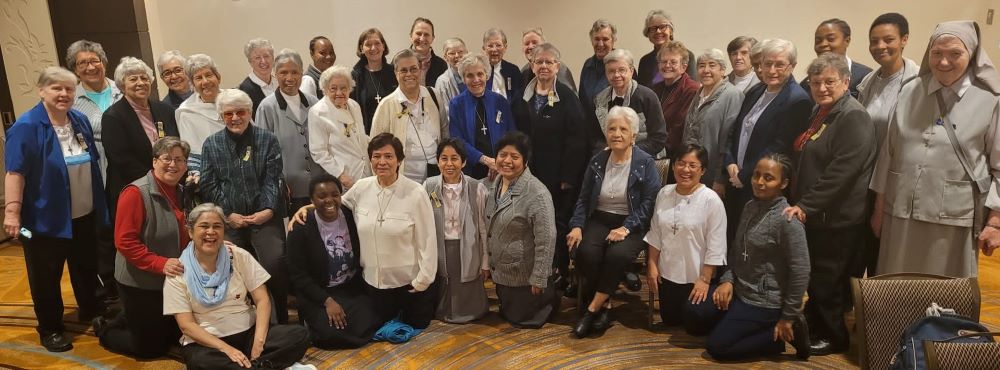
Missionaries of the Sacred Heart of Jesus gather ahead of the March 2022 pre-General Chapter Assembly. They came from Australia, Guatemala, Nicaragua, South Sudan and the United States. (Courtesy of Thérèse Hope Merandi)
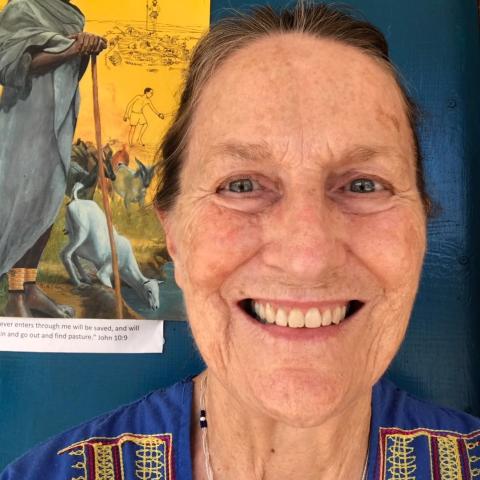
Thérèse Hope Merandi is an American-born and naturalized Brazilian Missionary Sister of the Sacred Heart of Jesus. With graduate degrees in theology and psychology, for 40 years she did formation work with various groups, including grassroots levels, in conflict areas, mostly in Latin American countries such as Nicaragua, Guatemala, Argentina, Cuba and Paraguay. She served in congregational general leadership and ministered for 20 years in African countries, including Ethiopia and Uganda. She is currently in South Sudan as part of the intercongregational pastoral team of Solidarity with South Sudan.
Why not? Why not stay in religious life!
I have been nurtured, grown, and benefited from it and come to know intimately our Lord Jesus Christ in these 57 years since I entered the Missionary Sisters of the Sacred Heart of Jesus. The Cabrinian charism of being "bearers of the love of Christ in the world" is as much a part of my DNA as is the gene for AB+ blood that I carry in my veins. The Lord has been exceedingly faithful to me in sickness and health, in bad times and good, through my sinfulness and in my yearning, seeking for him.
He has never abandoned me, even when I have put him on a back burner, wanting to shine in missionary and congregational endeavors, when in truth, it was him doing all the hard stuff and getting the job done.
Coming toward the evening of life, I can confidently say to our younger brethren questioning the significance and meaningfulness of religious life today, along with Eleazar (2 Maccabees 6:26), "I can never, living or dead, elude the grasp of the Almighty." The grasp of the Almighty who has taken hold and doesn't let go until the designs of his heart are made concrete and incarnated in our lives, be it in missionary lands or urban centers, passing through challenging times and situations of danger and conflict.
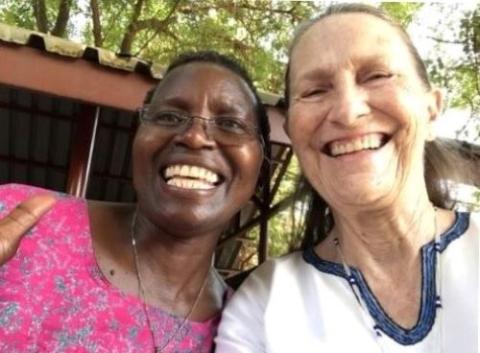
Mercy Sr. Scholasticah Nganda, left, and Sr. Thérèse Hope Merand, a Missionary Sister of the Sacred Heart of Jesus, are community members of Solidarity with South Sudan. (Courtesy of Thérèse Hope Merandi)
It is the Lord who holds on and leads. Slowly, slowly, we come to know him, recognize his voice, and see his face in the realities of our everyday lives on the margins of this world's concerns. With Paul, from the depths of our beings we know him to be "he in whom I have believed" (2 Timothy 1:12)
Why I do not leave religious life or the Catholic Church is because of my love and my life in Jesus Christ. It is my relationship with Jesus, from those first days of "come and see ... and staying with him" (John 1:39) into the maturing abiding relationship of "remaining in [his] love" (John 15:9) that anchor my life where he has planted me. Structures and styles of life change, but the enduring love, endless call and promises of the Lord remain. In anticipation along with Peter, we can joyfully confirm: "Lord, to whom shall we go? You have the message of eternal life, and we believe" (John 6:68-69)!
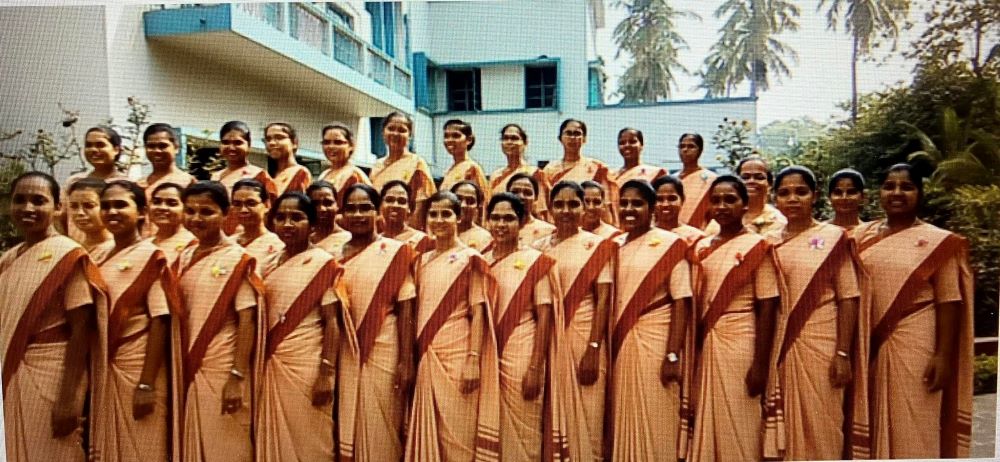
In Patna, India, temporary professed Sisters of Notre Dame gathered in 2022. (Courtesy of the Sisters of Notre Dame)
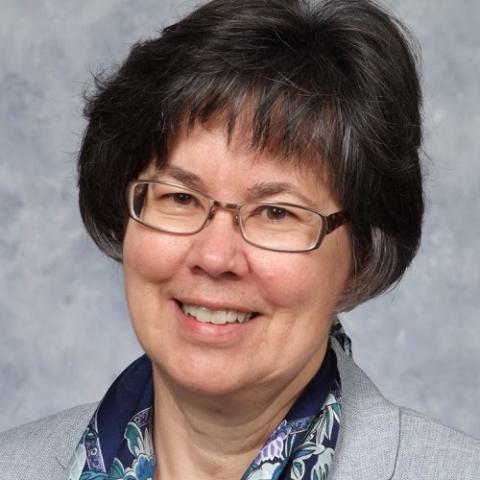
Mary Kathleen Glavich is a Sister of Notre Dame from Cleveland. In early ministries, she taught every grade from first to 12th. Later, she served as a vocation director for her diocese and as a pastoral associate in a parish. A writer and editor, she has published many articles and more than 90 books and was a featured speaker at a catechetical conference in the United Arab Emirates and Oman.
My childhood dream was to be a teacher. In the seventh grade, my first year in a Catholic school, the teacher was a joyful sister. Like a lightning bolt, I realized I could be a sister and teacher. God's call persisted, and I entered the convent right after high school. That year, many sisters, including some of my beloved teachers, left our community. I wondered if I should join the exodus.
One day in our college chapel, I presented my dilemma to Jesus. "What should I do, Lord?" No one was around, so I walked up to the Bible. On the opened page, my eyes fell on the passage about Peter boldly asking Jesus what they would have for following him. Jesus replied, "Everyone who has left houses or brothers or sisters or father or mother of children or fields, for my name's sake will receive a hundredfold, and will inherit eternal life" (Matthew 19:29). Taking this as God's personal message for me, I stayed. Jesus clearly wanted me there.
During rough times, I've clung to those divine words and persevered. Over the years, Jesus has been true to his promise: I do enjoy the hundredfold. Opportunities like daily Eucharist and retreats enable me to grow closer to God. My companions are like-minded, caring women who support me and make me laugh. My ministries not only give me the privilege of affecting the lives of untold people, but have allowed me to travel around the world.
Advertisement
The second part of Jesus' promise gives me hope. I trust that someday, yes, I will enjoy eternal life ... with him.
As the number of sisters in my province dwindles, what gives me hope for our future? We have always adapted to changing times. When the Kulturkampf drove us out of Germany, we took root in the United States. Today, we are thriving in countries where we U.S. sisters began missions. This year in East Africa, nine postulants became novices and eight novices made temporary vows. In India, a healthy group of temporary professed sisters came together for the first time since the pandemic. As for us Americans, although we are graying, we continue to impact society.
Someone said, "Religious vows of poverty, chastity, and obedience mean no money, no honey, and I have a boss." Although at times I miss having my own home, man, children and money, I don't regret answering that special call.
People participate in the Second Assembly of the Plenary Council of the Australian Catholic Church in Sydney July 6, 2022. (CNS photo/Fiona Basile)
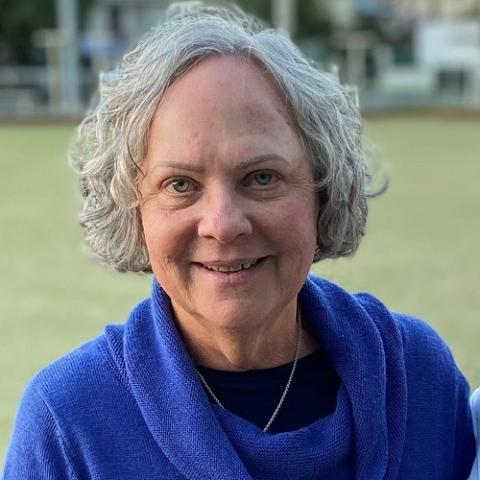
Annette Arnold is a Sister of St. Joseph of the Sacred Heart from Rockhampton, Queensland, Australia. She has an academic background in education, counseling, community development, mission studies, professional supervision and spiritual direction. She has taught in primary and secondary schools and conducted high school retreats and counseling. She has also worked as the executive office of the Brisbane Archdiocese's justice and peace commission and as the coordinator of the social action office of religious congregations. She has worked with First Nations women preparing to coordinate a safe house for victims of domestic violence and has served on her congregation's provincial and general councils and as a regional leader. She currently works in spiritual direction and professional supervision.
Why wouldn't I stay in religious life? It's me, it's my life, and I love my life. I was called by God, and I desire to respond generously and courageously each day to that call — a call into oneness with God. All else flows from that.
Is that too simplistic, given the ever-changing context of religious life? But our hope as religious is in the call and our response to be Christ in our world. If I focused only on our ages and the decrease in the number of women in our community, I could lose hope, but there is far too much life in each one of us as communally we commit to God's dream. We are motivated by the call we gave each other at our 27th general chapter in 2019:
God's call at this time
is to be audacious Josephite women
raising our consciousness of love
by imagining and acting
on new possibilities wherever we are
that will heal, include, untether,
set right and serve.Women of Earth
we are grounded in mission
steeped in the charism
participating in Church
as gospel community
engaging with neighbours
and ministering with Christ
in the Cosmos.
Who wouldn't want to be part of that! And who wouldn't want to belong to a community committed to this audacious invitation?
Religious life emerged from the margins of the church, not from the center — from meeting the needs of those most marginalized. I am happy to be on the margins, to where God is calling forth greater life.
I am happy to be on the margins, to where God is calling forth greater life.
Recently, my call to participate in church was seriously challenged. A few weeks ago, at the second Plenary Council of this country, the Australian bishops initially rejected motions aimed at ensuring women play a greater role in the church (including support for admission of women to become church deacons, if the pope agreed). My initial response to this gut-wrenching decision was to leave the church. I could not contemplate staying any longer in an organization that had such little regard for me as a woman. During the sleepless nights after their decision, I thought hard: If I left the church, would that mean leaving religious life?
Yes, it would. Then why do I stay? Because I am called; I am part of a community and a global sisterhood that calls us to the edges of society and the church. The church needs religious life more than ever in these disturbing times. I pray for the grace to continue to be Christ in our world, calling for truth and justice "from the edge."
Homeless people sleep in front of the São Paulo Cathedral during cold temperatures in the Brazilian city May 18, 2022.St. Rita Schneider said her religious vocation grew when witnessing the poverty and suffering in rural Brazil. (CNS/Reuters/Amanda Perobelli)
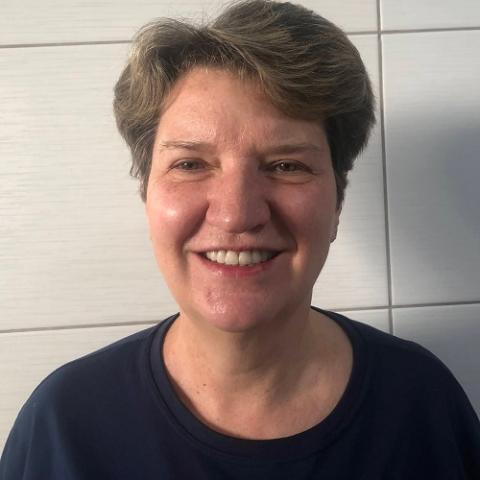
Rita Schneider is a member of the Sisters of the Immaculate Heart of Mary. She is originally from Brazil but worked for two years as a missionary in Haiti and more recently with Brazilian immigrants in the United States. She has an academic background in Portuguese, theology and sociology. Now back in Brazil, she is currently on the leadership team of her province and works on social projects with the poorest communities in south Brazil.
I stay in religious life because I am happy. I believe in God, who brought me to life and acts in the circumstances of my life.
Since my early youth in south Brazil, I have seen much pain and suffering, even in my own family. I was born and raised in a poor rural area of Brazil, where we had no electricity, no running water, no medicine, and no public transportation, and Brazil was under a horrendous military dictatorship from 1964 to 1985.
I belonged to a youth group where we prayed and reflected about what was going on in the world and in our country. We got news only through radio, and I felt a deep desire to do something to make this world a little better.
We did theater productions on the theme of the sad events that were happening, and we presented them to other groups to raise people's consciousness. For example, we did one about a family member dying with no health care. Another presentation featured parents who worked very hard but did not make enough to feed the family. Still another was about a family searching for a family member who went missing during the dictatorship. There was a lot of creativity!
My vocation to religious life was born in this environment and always had a more social leaning toward a theology of liberation and post-Vatican II, since I was born in in the 1960s.
I find hope in the everyday little joys that reaffirm that the path is worth it.
Luckily, the congregation I joined has a commitment to people who live in great poverty, and I missioned in three different countries, working with small communities of faith, immigrants and landless people.
I have always been a hopeful person. Stubbornly hopeful. I am in consecrated religious life because I feel within me the desire to give the best of myself, which I see as a call from God.
Many things depend on my predisposition, like a good attitude, being fraternal and supportive to others. My hope is active, coming from God who is inside me. I cannot simply wait for the other, for society, for the institution, but must always play an active role. If I wait, I may end up frustrated.
I also find hope in the everyday little joys that reaffirm that the path is worth it.
God always led me, and I believe that he will never abandon me, even in the valley of shadows.






